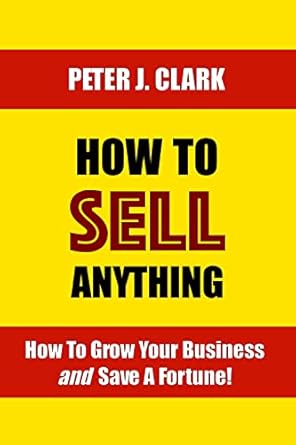A Great Marketing Opportunity
By Fiona WoolfSeptember 17, 2013
Would you like to increase your sales to customers who will promote your company and products? If so, look to your marketing relationship with Millennials...
The largest consumer group in history...
What is the largest consumer group in history? Contrary to popular belief, it is not the Baby Boomers but Millennials (aka Generation Y). The children of the Baby Boomers, Millennials comprise Americans born in the 1980's and 1990's. Today, their ages range from 13 to 33; in 5 years from 18 to 38; and in 10 years, from 23 to 43. As Millennials come of age, they will be the vanguard of cultural, technological and business developments. Already, their size and influence makes them a key retail demographic.
What sets Millennials apart from previous generations is their unprecedented spending. In his book, The Age Curve, Kenneth Gronbach contends Millennials will have an epoch-making impact on retail: "Of massive marketing opportunities, Gen Y is the most massive in history. Their appetite for consumption is already 500% greater than their parents." As Millennials enter their peak buying years, it will be critical for retailers to understand the mindset and lifestyles of these uberconsumers to build a marketing relationship with them.

Millennials have grown up in a culture of computers, and their relationship with (and reliance on) technology defines their lives. The term "digital natives" has been coined to describe Millennials. (Older generations are considered nonnatives). The Internet has enabled Millennials to become a uniquely social generation: hyper-connected and highly interactional. Millennials differ from their predecessors in that it is typical of them to go online and share their opinions, product preferences, and everyday experiences with the world at large, not just tell others face-to-face. This means that retailers should not only view Millennials as customers, but also potential brand ambassadors.
Marketing to Millennials
The same marketing methods that worked on Baby Boomers and Generation X will not suffice for Millennials. Internet marketing is now an added requisite. Recognizing how the Internet shapes the lives of Millennials (and influences their purchase decisions) is the first step toward strategizing a marketing relationship with them.
Two major factors driving purchase decisions for Millennials are brand popularity and the opinions of others (family, friends, online community). For this reason, Millennials are more prone than older consumers to actively seek outside information (customer reviews, price comparisons, etc.) to make purchase decisions. A 2011 study by Aimia, Inc. surveying the attitudes and habits of Millennial and non-Millennial consumers, found that 58% of Millennials check user reviews before making a purchase compared to 31% of non-Millennials.
So how do you market to a generation of consumers who turn to outside sources for reliable and trustworthy advice? Have the people who purchase your products promote them. Consider this, for years marketers have been paying celebrities top dollar to endorse their products. But average consumers who use your products and choose to promote them can prove a more effective (and less costly) way to advertise.
Millennials as Marketers
Millennials are significantly interconnected with social media, so it is not surprising that companies are looking to social media marketing to target this demographic. According to Aimia, 72% of Millennials cite using Facebook often or very often; moreover, almost half (44%) of Millennials express willingness to promote a product or brand through social media for rewards. To accommodate this, a number of companies and loyalty programs encourage (and incentivize with rewards) certain online activities including:
- Social sharing: consumer-to-consumer referrals of deals and offers through social network sites (eg, Facebook, Twitter, Google+)
- Social mentions: talking about a company or products through social media
- Referring friends to a company or product through social media
- "Liking" a company's Facebook page or products
- Posting reviews on social network sites (eg, Facebook, Twitter, FourSquare), third party shopping sites (eg, Amazon), and third party review sites (eg, Yelp, SuperPages)
- Clicking "social/expression buttons" on company websites enabling consumers to share favorite products with friends and followers through social network sites
- e-commerce websites inviting customers to post their actual online purchases to their social network page, influencing their friends and followers to make similar purchases (termed co-buying)
Conclusion
In the past, businesses had complete control over what was being publicly broadcast about their company and products. Today, the Internet makes it possible for anyone to be an online commentator on companies' services and products to a global audience. Equally important, future directions in marketing are Internet-based and direct-response marketing through traditional media alone is no longer sufficient.
Encouraging consumers to indirectly market your products through certain online activities (consumer-to-consumer viral marketing) is advantageous for attracting and engaging Millennials ... a generation of consumers inclined to be skeptical of information directly conveyed by retailers, favoring the advice of family, friends, and online outsider information to make deliberate purchase decisions.
Effectively marketing to Millennials and, in turn, having Millennials market for you is a two-way exchange. Demonstrate to Millennials that you value their opinion (and are willing to reward them for it) and they will reward you with online recognition.
About the author...
Fiona Woolf, a graduate of the University of Virginia, specializes in market research.

